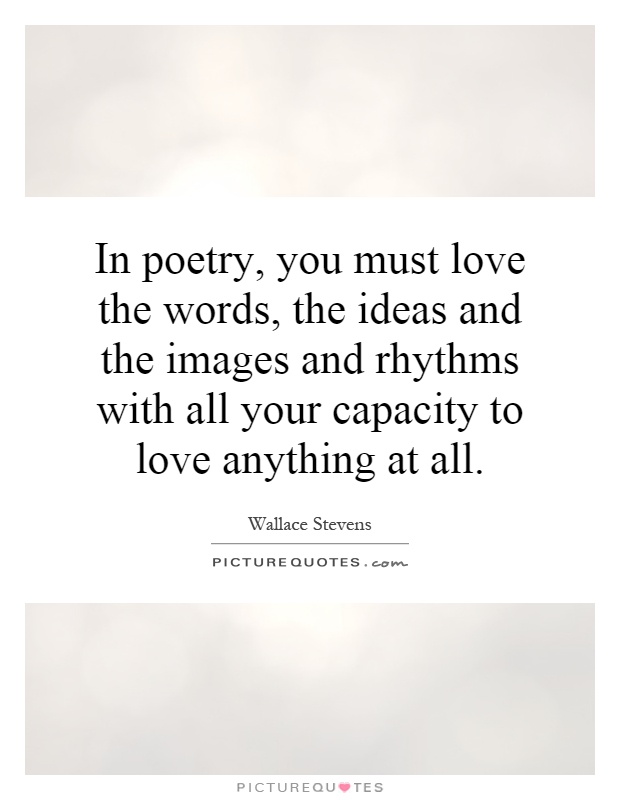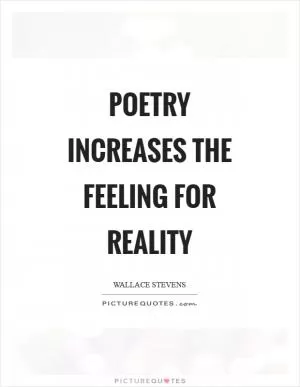In poetry, you must love the words, the ideas and the images and rhythms with all your capacity to love anything at all

In poetry, you must love the words, the ideas and the images and rhythms with all your capacity to love anything at all
Wallace Stevens, one of the most influential American poets of the 20th century, understood the power and importance of language in poetry. His work is characterized by its intricate wordplay, vivid imagery, and complex philosophical ideas. Stevens believed that in order to create truly great poetry, one must have a deep and abiding love for the words, ideas, images, and rhythms that make up a poem.For Stevens, poetry was not just a means of self-expression or communication, but a way of engaging with the world and exploring the mysteries of existence. He saw language as a tool for uncovering deeper truths and connecting with the ineffable beauty of the universe. In his famous essay "The Necessary Angel," Stevens wrote, "The poet is the priest of the invisible, the one who makes the invisible visible through the magic of words."
Stevens believed that in order to be a successful poet, one must approach the craft with a sense of reverence and awe for the power of language. He saw poetry as a sacred art form that required a deep emotional and intellectual engagement with the material. In his poem "Of Modern Poetry," Stevens writes, "The poem of the mind in the act of finding / What will suffice."
Stevens' own poetry is a testament to his belief in the transformative power of language. His poems are filled with rich and evocative imagery, intricate wordplay, and profound philosophical insights. In works like "The Emperor of Ice-Cream" and "Sunday Morning," Stevens explores themes of beauty, mortality, and the nature of reality with a lyrical intensity that is both captivating and thought-provoking.












 Friendship Quotes
Friendship Quotes Love Quotes
Love Quotes Life Quotes
Life Quotes Funny Quotes
Funny Quotes Motivational Quotes
Motivational Quotes Inspirational Quotes
Inspirational Quotes